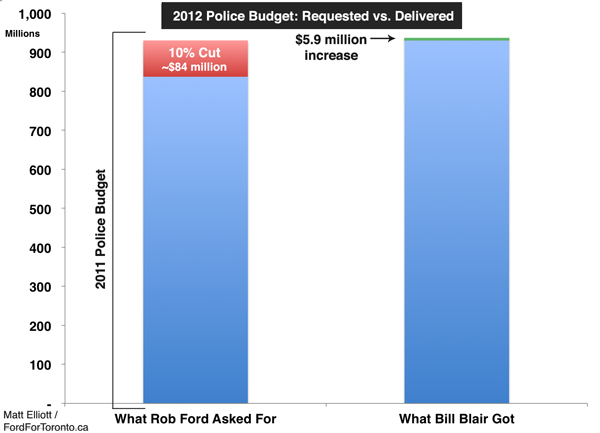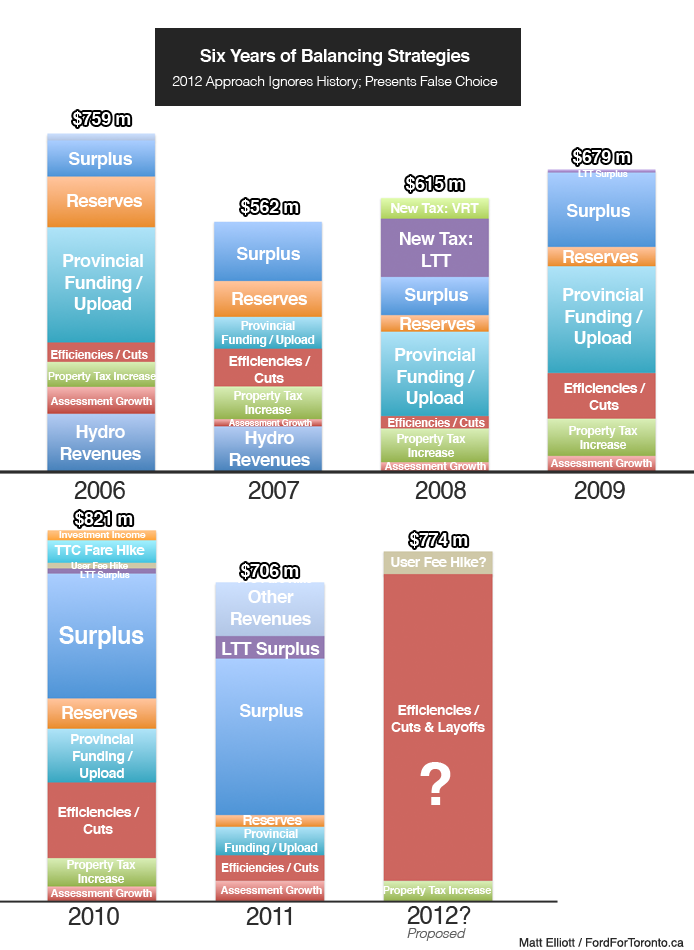It’s been lurking in the shadows of other news stories for months now — I hoped it would just go away — but this week it’s become clear that there is no avoiding it: we’re going to spend the next six months talking about unions.
The Globe & Mail’s Patrick White &Â Tu Thanh Ha:
Demands made by the city to its 8,000 outside workers run the gamut from an elimination of premium night-shift pay to the termination of some job-security clauses, according to a copy of a 21-page bargaining proposal obtained by The Globe and Mail.
Spanning more than 40 individual concessions, the document amounts to a fundamental overhaul of the municipality’s relationship with public-sector unions, fanning concerns that the city is in store for a prolonged work stoppage.
via City of Toronto document outlines demands it seeks from unions | Globe & Mail.
What should be early-stage private negotiations between the city and the union — the current contract doesn’t expire until December 31 — quickly became public, which indicates that one side really isn’t interested in reaching a settled agreement. And given that only one side has much to gain from a protracted dispute, all indications point to Rob Ford’s team working an angle. They want to force a public labour battle which will probably include a lock-out.
From a purely dollars-and-cents perspective, it’s not entirely clear why. The Globe has a term-paper-sized list of demands-for-concessions issued by the city, some of which seem driven by a desire to contain costs, but others, oddly, seem fairly arbitrary. Are there significant savings to be had from killing, for example, “a joint union/management committee aimed at creating a ‘clean and beautiful City?'”
What’s the city’s — and by that I mean, mostly, the mayor’s office — end goal with this play? How much money does the city need to save to balance the budget over the course of the new contract? Are there other ways to achieve those savings that won’t result in a nasty work stoppage? Has anyone even considered that question?
Or do we just want war?
Ford Nation: Riding an anti-union wave back to the top
A war with the unions isn’t a bad strategy for Rob Ford. It was, after all, a pre-emptive war with unions that brought him to the mayor’s office.
Public sector unions are not very popular. There’s no getting around this. Many of the strategic moves made by the various public sector unions through the David Miller years — things like the midnight TTC strike and some of the tactics during the 2009 feud — were serious missteps that didn’t do anything good for their public support. That there was so much labour strife during a period where the political power was firmly in the hands of a labour-friendly mayor and council doesn’t speak well of the union leaders’ ability to fairly negotiate within the bounds of fiscal reality.
And, yes, I know that the ins-and-outs of contracts and negotiation are far more complicated than I just portrayed them, but perception is what it is. It’s hard to change.
And so, absent effective counter-messaging from the union, this looming debate will go this way: even though the winter work stoppage will most likely be a lock-out, not a strike, a good portion of the public will treat it like a strike, and blame the union for the cessation in public services. Rather than think of this dispute in terms of the city’s budget — how much the union wants, and how much the city needs to save — pundits and columnists and talk radio callers will endlessly pontificate on the role of unions in the public sector and the modern economy. The arguments will descend to the point they always do, with one person essentially whining that another person gets better benefits and higher pay than they do.
Very few will stop to consider whether we should be building up wages and benefits across the private sector, instead of tearing them down in the public sector.
And so the mayor takes his position as the guy standing tough against those who would exploit the taxpayers. And, lo, on the horizon, is that Ford Nation rising again?



